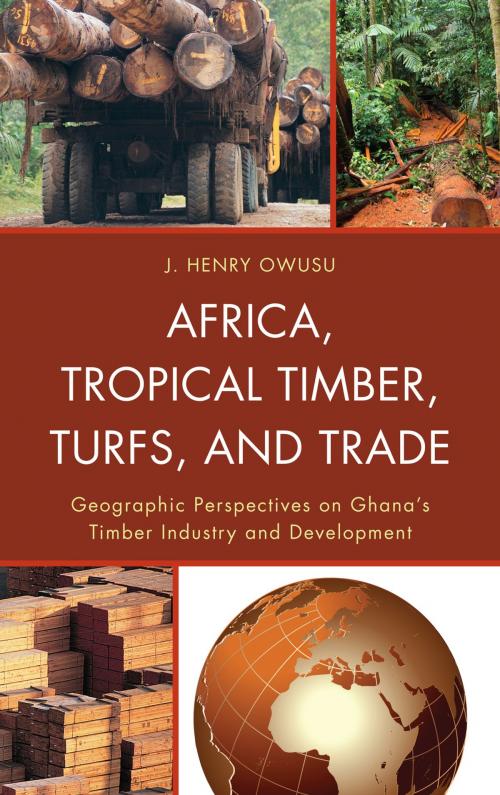Africa, Tropical Timber, Turfs, and Trade
Geographic Perspectives on Ghana’s Timber Industry and Development
Nonfiction, Social & Cultural Studies, Political Science, Politics, Labour & Industrial Relations, Social Science, Human Geography| Author: | J. Henry Owusu | ISBN: | 9780739174029 |
| Publisher: | Lexington Books | Publication: | August 20, 2012 |
| Imprint: | Lexington Books | Language: | English |
| Author: | J. Henry Owusu |
| ISBN: | 9780739174029 |
| Publisher: | Lexington Books |
| Publication: | August 20, 2012 |
| Imprint: | Lexington Books |
| Language: | English |
This book examines development issues, particularly spatial integration, in Sub-Saharan Africa regarding its tropical timber trade, and the related formal-informal operational turf creation, control and dynamics. Focusing primarily on Ghana, Owusu examines the scramble to control the timber trade by various political and socio-economic interests, from the colonial to the neo-liberal era. In relation to this, Owusu documents the structural and organizational changes that have occurred in the region resulting from national and international development policies, such as modernization and neo-liberal structural adjustment on industrialization and development, and assesses the roles played by powerful international organizations such as The World Bank as agents of economic change. The discussion is couched in the critical but often unrecognized or neglected role the discipline of geography and its associated perspectives play in relation to examining and understanding the unequal relationship between the advanced and developing economies, and how that relationship affects development and trade behavior of developing economies. The core argument made regarding this relationship is tied to the structuralist perspective that Africa’s persistent underdevelopment problem is rooted in the very structure of its political economy. Based on the discussion, Owusu identifies and distills lessons from Ghana’s experience for Development policy and practice in Africa and comparable Developing countries in the 21st Century.
This book examines development issues, particularly spatial integration, in Sub-Saharan Africa regarding its tropical timber trade, and the related formal-informal operational turf creation, control and dynamics. Focusing primarily on Ghana, Owusu examines the scramble to control the timber trade by various political and socio-economic interests, from the colonial to the neo-liberal era. In relation to this, Owusu documents the structural and organizational changes that have occurred in the region resulting from national and international development policies, such as modernization and neo-liberal structural adjustment on industrialization and development, and assesses the roles played by powerful international organizations such as The World Bank as agents of economic change. The discussion is couched in the critical but often unrecognized or neglected role the discipline of geography and its associated perspectives play in relation to examining and understanding the unequal relationship between the advanced and developing economies, and how that relationship affects development and trade behavior of developing economies. The core argument made regarding this relationship is tied to the structuralist perspective that Africa’s persistent underdevelopment problem is rooted in the very structure of its political economy. Based on the discussion, Owusu identifies and distills lessons from Ghana’s experience for Development policy and practice in Africa and comparable Developing countries in the 21st Century.















